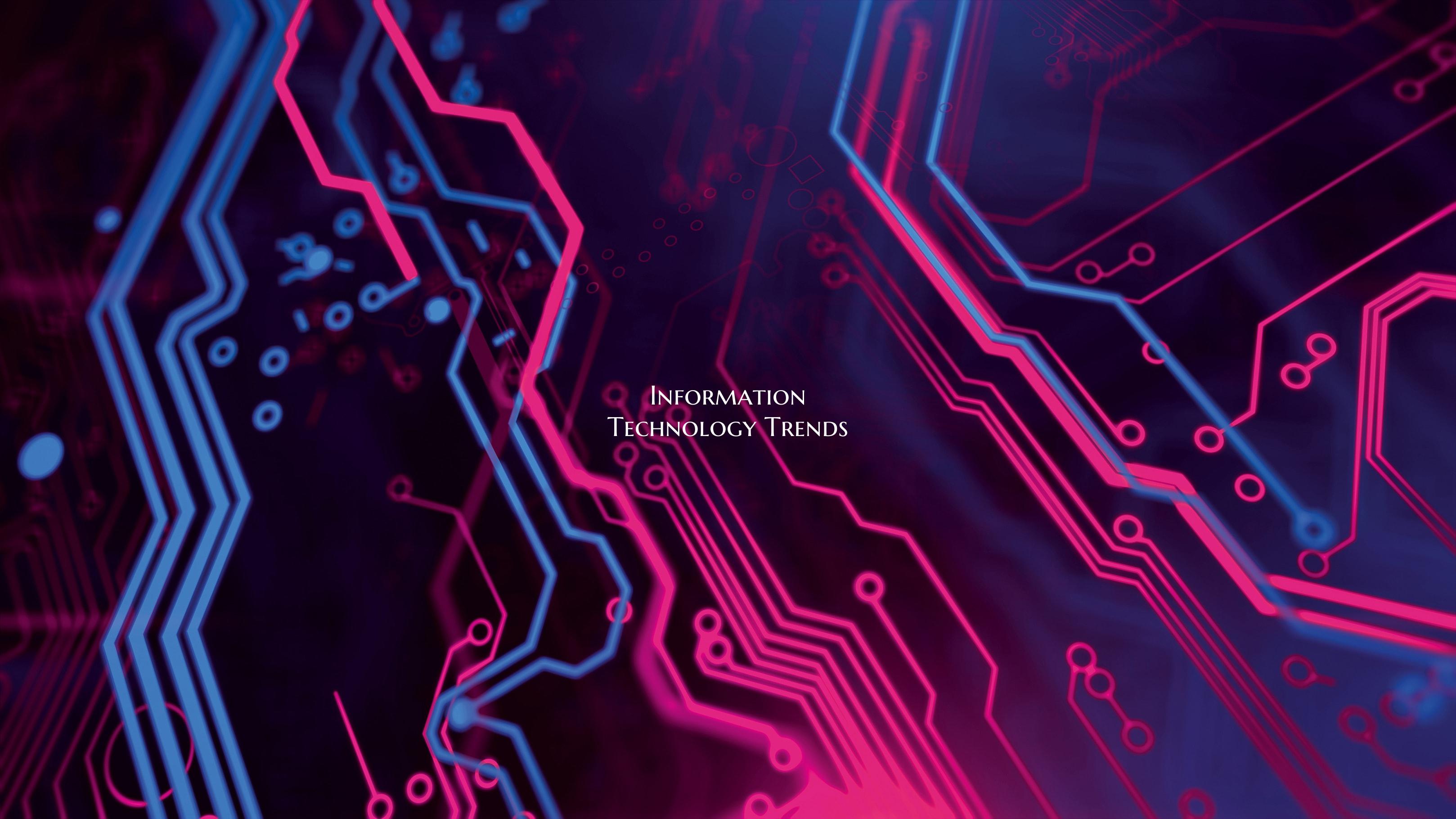Information Technology Trends
As technology continues to evolve at a rapid pace, it is crucial for businesses and individuals to stay informed about the latest trends in information technology (IT). In this digital age, staying ahead of the curve can provide a competitive edge and drive innovation. Let's delve into some of the most significant trends shaping the IT landscape today:
1. Artificial Intelligence (AI) and Machine Learning: AI and machine learning are revolutionizing various industries by enabling machines to learn from data and make decisions without human intervention. These technologies are being used for predictive analytics, process automation, and enhancing customer experiences.
2. Internet of Things (IoT): The IoT is a network of interconnected devices that can collect and exchange data. From smart homes to industrial applications, IoT is transforming the way we interact with technology, enabling seamless connectivity and automation.
3. Cloud Computing: Cloud computing continues to be a dominant trend in IT, providing scalability, flexibility, and cost-efficiency for businesses. With cloud services, organizations can access data and applications from anywhere, driving collaboration and streamlined operations.
4. Cybersecurity: As data breaches and cyber threats become increasingly common, cybersecurity remains a top priority for businesses. From ransomware attacks to phishing scams, investing in robust cybersecurity measures is essential to protect sensitive information and maintain trust with customers.
5. Edge Computing: Edge computing involves processing data closer to the source rather than relying on centralized cloud servers. This trend is gaining traction as it helps reduce latency, enhance data processing speed, and support real-time applications like autonomous vehicles and smart cities.
6. 5G Technology: The rollout of 5G networks promises faster speeds, lower latency, and greater connectivity for devices. This technology is set to revolutionize mobile communications, enabling advancements in areas such as augmented reality, virtual reality, and the Internet of Things.
7. Quantum Computing: Quantum computing leverages quantum-mechanical phenomena to perform complex computations at speeds unimaginable with classical computers. While still in the early stages of development, quantum computing has the potential to revolutionize industries such as finance, healthcare, and logistics.
8. Remote Work and Collaboration Tools: With the rise of remote work, the demand for collaboration tools and virtual communication platforms has surged. Technologies such as video conferencing, project management software, and virtual whiteboards are enabling seamless collaboration across distributed teams.
Staying informed about these IT trends is crucial for businesses looking to adapt to the changing landscape and harness the power of technology to drive growth and innovation. By embracing these trends and leveraging emerging technologies, organizations can position themselves for success in the digital era.

